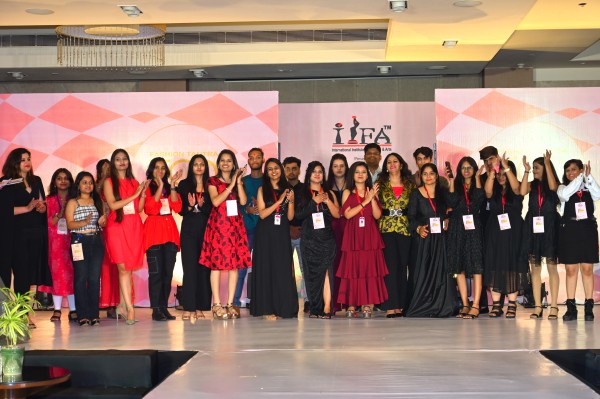Introduction:
In recent years, India has emerged as a vibrant hub for fashion, attracting attention from around the world for its rich tapestry of creativity, craftsmanship, and cultural diversity. At the heart of India's fashion scene are its numerous fashion weeks, which serve as platforms for designers to showcase their latest collections, celebrate indigenous craftsmanship, and push the boundaries of sartorial innovation. From the glitz and glamour of Mumbai to the artistic fervor of Delhi, fashion weeks in India offer a kaleidoscopic glimpse into the country's dynamic and ever-evolving fashion landscape.
Celebrating Diversity:
One of the defining features of fashion weeks in India is the celebration of diversity, both in terms of design aesthetics and cultural influences. With its myriad of languages, traditions, and regional identities, India is a melting pot of creativity, and fashion weeks serve as a reflection of this rich cultural tapestry. Designers from across the country draw inspiration from their heritage, incorporating traditional motifs, textiles, and techniques into their collections. Whether it's the vibrant colors of Rajasthan or the intricate weaves of Assam, fashion weeks in India celebrate the diverse cultural heritage that defines the nation's sartorial identity.
Platform for Emerging Talent:
Fashion weeks in India also play a crucial role in nurturing and showcasing emerging talent in the fashion industry. Young designers, fresh out of design schools or with limited exposure, have the opportunity to showcase their creativity and vision on a prestigious platform. Fashion weeks provide a launchpad for these budding talents to gain recognition, secure collaborations, and build networks within the industry. Moreover, initiatives like the Gen Next program at Lakme Fashion Week and the Emerging Designer Platform at India Fashion Week provide mentorship and support to emerging designers, helping them navigate the competitive world of fashion.
Spotlight on Sustainable Fashion:
In recent years, there has been a growing emphasis on sustainable and eco-friendly fashion in India, and fashion weeks have played a pivotal role in raising awareness about environmental issues and promoting ethical practices in the industry. Many designers are incorporating sustainable materials, ethical production methods, and fair trade practices into their collections, showcasing the potential for fashion to be both stylish and environmentally responsible. Fashion weeks provide a platform for these designers to highlight their efforts towards sustainability and inspire consumers to make conscious choices about their fashion purchases.
Fostering Collaboration and Innovation:
Fashion weeks in India are not just about showcasing individual designers; they are also about fostering collaboration, dialogue, and innovation within the industry. Designers, stylists, models, photographers, and fashion enthusiasts come together during fashion weeks to exchange ideas, explore new trends, and push the boundaries of creativity. Collaborations between designers and artisans, fashion houses and technology companies, and industry veterans and emerging talent are common occurrences, leading to exciting new developments in design, marketing, and retail. Moreover, fashion weeks serve as platforms for panel discussions, workshops, and networking events, providing valuable opportunities for learning and professional development within the fashion community.
Promoting Indian Fashion on the Global Stage:
With the rise of globalization and digital connectivity, fashion weeks in India have gained increasing prominence on the global stage, attracting attention from international media, buyers, and fashion enthusiasts. Designers like Manish Arora, Sabyasachi Mukherjee, and Anita Dongre have showcased their collections at international fashion weeks and have garnered acclaim for their unique blend of Indian craftsmanship and global appeal. Moreover, initiatives like the FDCI Fashion Week and Lakme Fashion Week have forged partnerships with international organizations and fashion councils, further enhancing the visibility and influence of Indian fashion on the global stage.
Conclusion:
Fashion weeks in India are more than just glamorous spectacles; they are dynamic platforms for creativity, diversity, and innovation within the fashion industry. From celebrating indigenous craftsmanship to promoting sustainable fashion practices, fashion weeks play a pivotal role in shaping the narrative of Indian fashion and positioning the country as a global fashion destination. As India's fashion scene continues to evolve and flourish, fashion weeks will remain integral to the growth and development of the industry, providing a space for designers to showcase their talent, inspire audiences, and push the boundaries of creativity.



















Your Message